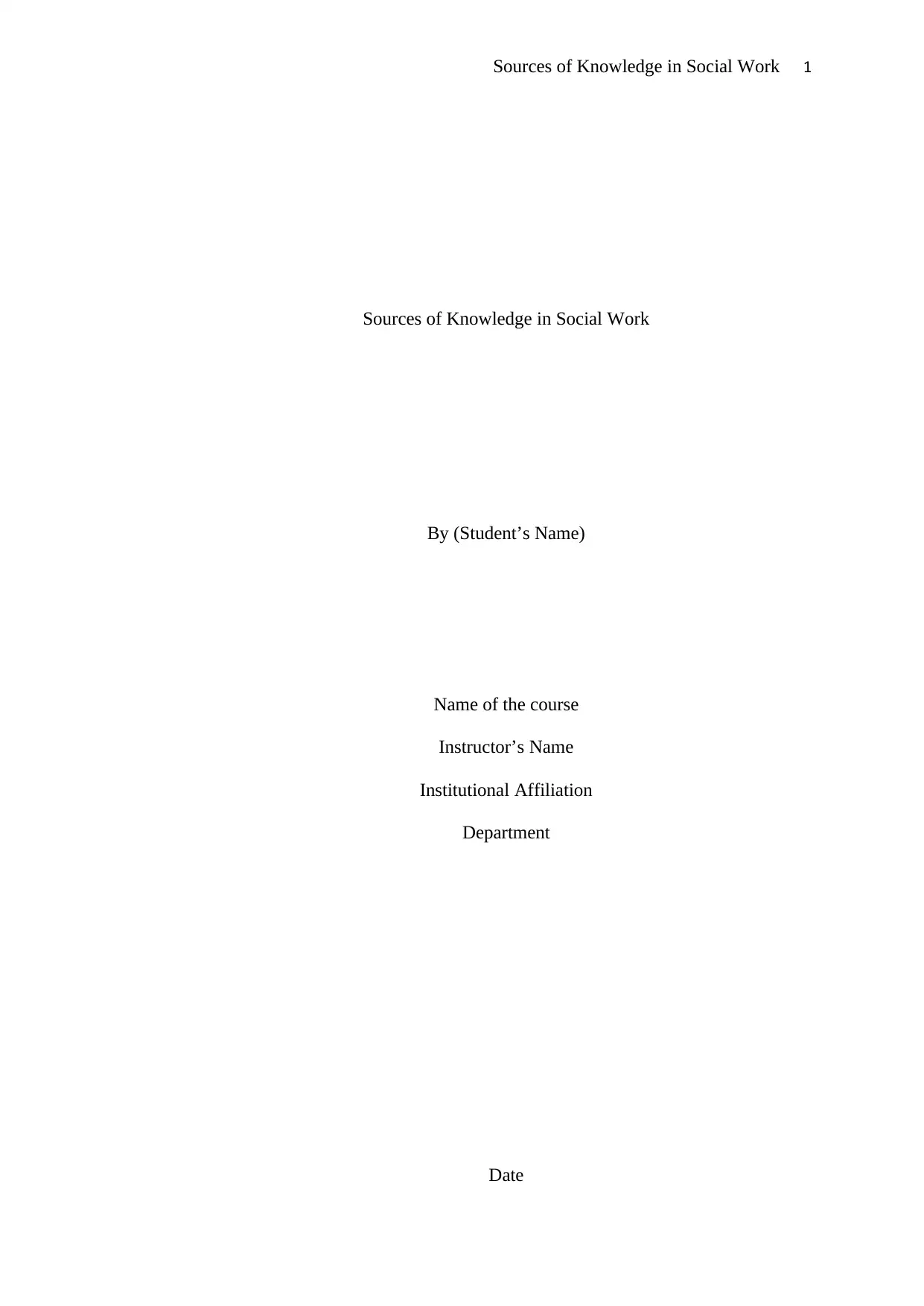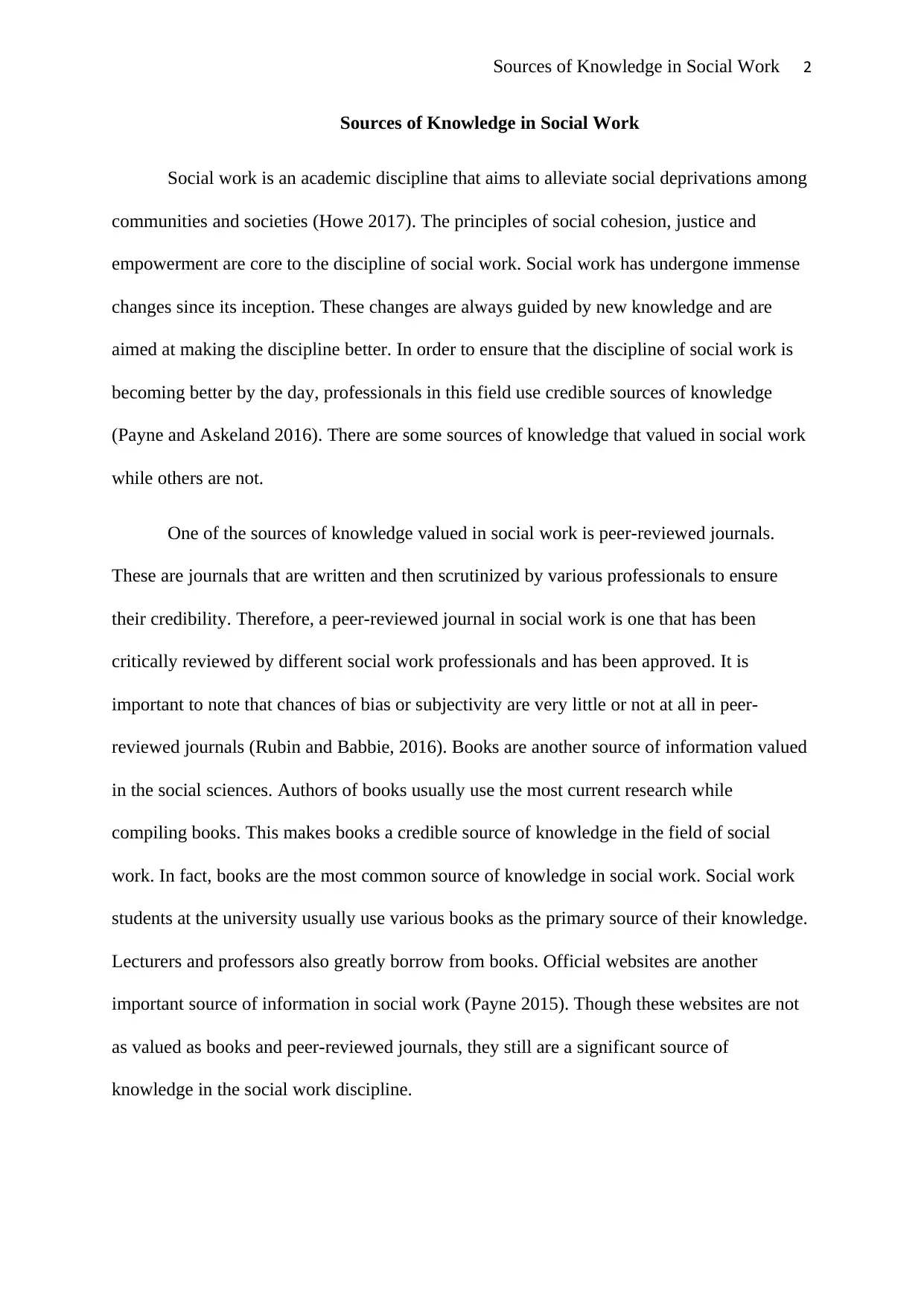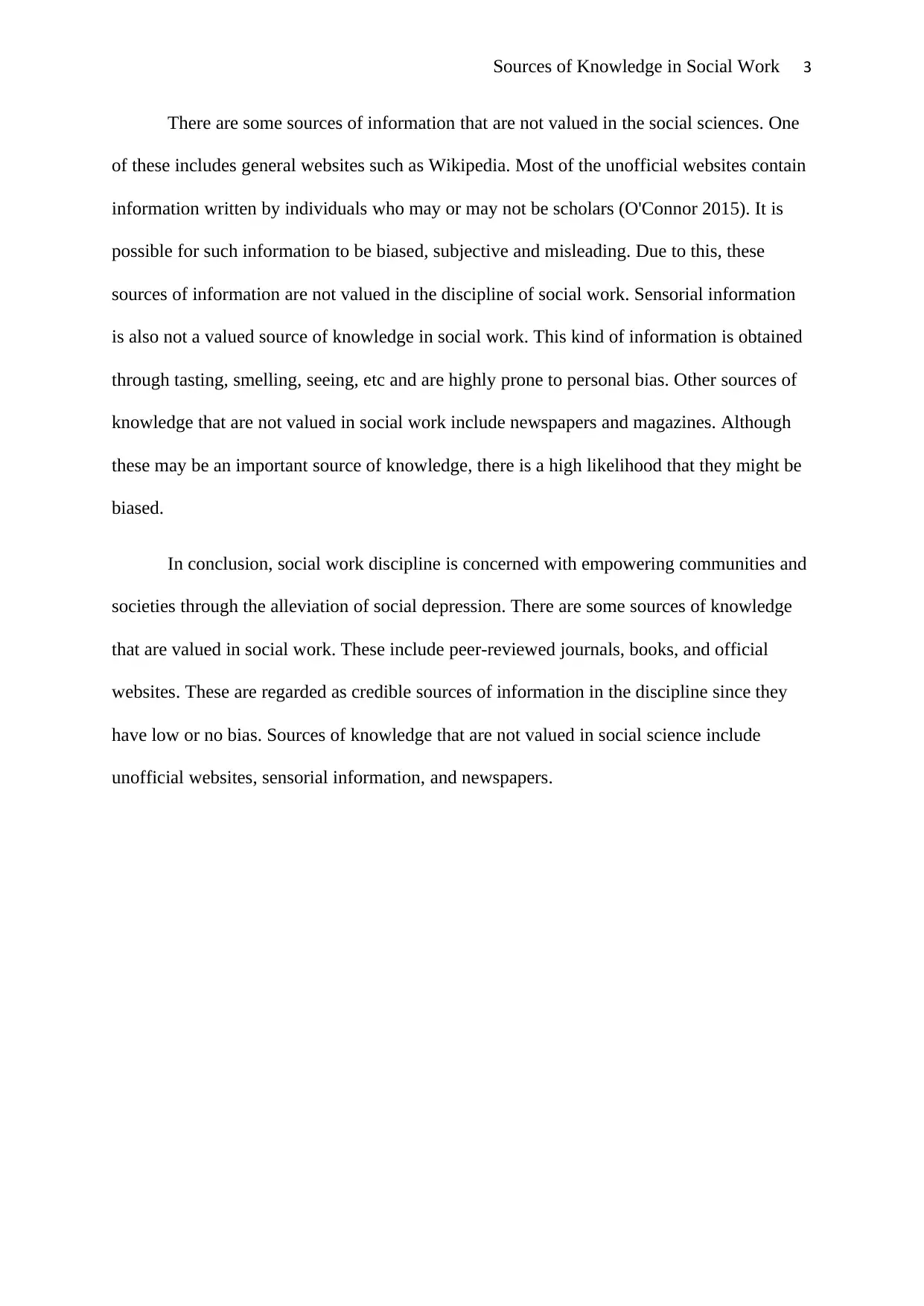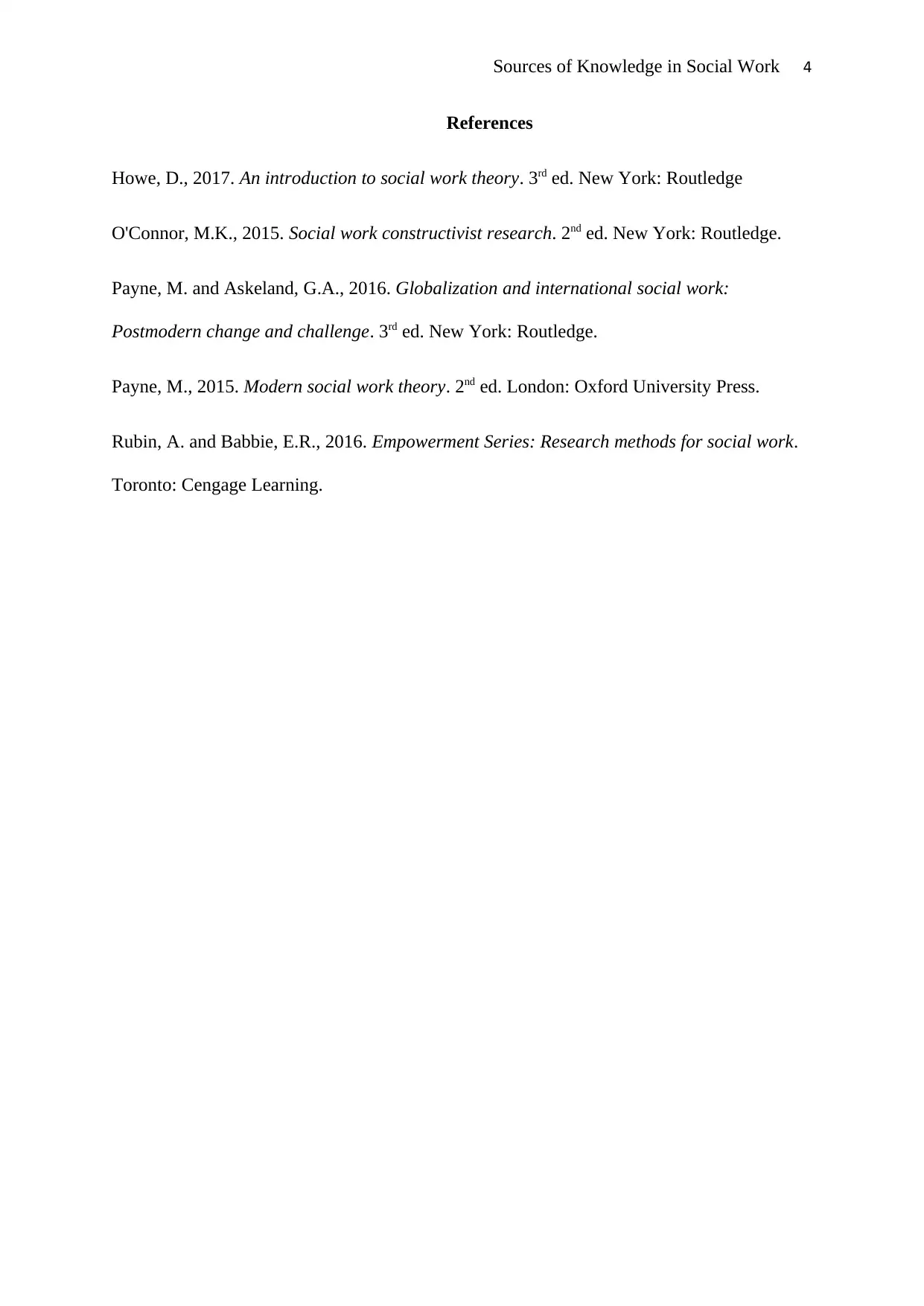Critical Analysis of Knowledge Sources in Social Work Practice
VerifiedAdded on 2023/01/19
|4
|732
|40
Essay
AI Summary
This essay explores the various sources of knowledge utilized in the field of social work. It highlights the importance of peer-reviewed journals, books, and official websites as credible sources due to their low bias and rigorous review processes. Conversely, it identifies unofficial websites like Wikipedia, sensorial information, newspapers, and magazines as less reliable sources due to potential biases and lack of scholarly validation. The paper emphasizes the discipline's commitment to evidence-based practice, underscoring the need for social work professionals to rely on sources that ensure accuracy, objectivity, and support the empowerment of communities and societies through the alleviation of social depression. The essay provides a clear distinction between valuable and less valuable resources, guiding social work practitioners and students toward informed decision-making and practice.
1 out of 4











![[object Object]](/_next/static/media/star-bottom.7253800d.svg)